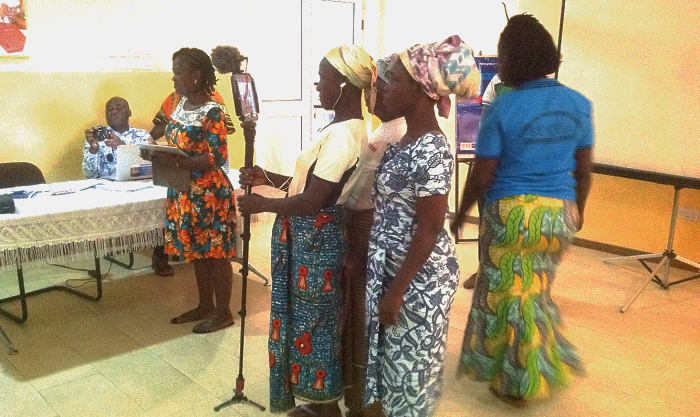
Cry of widows in the Upper East. Participatory video highlights experiences
Widows are perhaps one of the most marginalised and disadvantaged segment of the population in the Upper East Region.
Advertisement
In some communities, losing a beloved husband sometimes leads to widows being labelled as witches or being accused of killing their husbands.
For that reason, they endure humiliating widowhood rites, alienation from community life, discrimination, verbal and physical abuse among other dehumanising treatment in some communities.
However, this happens to be just the beginning of their suffering in life as some of them are evicted from their farmlands by the families of their late husbands. In some cases, unless they agree to remarry within their late husband's family (typically to a brother-in-law), the land they farm on are seized making them unable to support themselves and their children.
Impoverishment
In some of the communities, the impoverished widows do not have what it takes to fight back and take what rightfully belongs to them. As is so often the case, the silent hand of corruption, locally referred to as "Moogre" in the Gurune language lurks behind the scenes.
Those with the deepest pockets or the financially endowed persons in the communities are said to give tips to some traditional rulers and Tindaanas (traditional land custodians), which invariably lead to land disputes being resolved in their favour in such communities.
Film
That is how 10 widows from a community called Kulbia, about 13 kilometres away from the Bolgatanga Municipality, narrated their own story in a unique short film titled "Pakorpa Susangho" which literary means "A widow's cry".
The film highlights the personal experiences of widows and sheds light on how corruption in their communities impacted negatively on the human rights and general development of widows and their children.
In the film, the widows interviewed chiefs, assembly members and some Tindaanas challenging them on how corruption had contributed to the eviction of widows from lands left for them by their late husbands.
It is envisaged that the film will eventually help champion the course of these widows towards ensuring a fairer society for any woman who unfortunately loses her husband.
The widows, who are between the ages of 29 and 60, shot and produced the film by themselves using cutting-edge production techniques and equipment. Although they lack any formal education, they were taught how to operate equipment such as the iPad for any video recordings with confidence and skills.
The widows were supported by the Insight Share, a global leading agency that focuses on using participatory video as a tool for community-led social change.
Other supporting organisations for the production of the film were, the Ghana Integrity Initiative (GII), Transparency International, a global coalition against corruption, and the Widows and Orphans Movement (WOM), a non-profit organisation that focuses on helping alleviate the plight of widows and orphans in northern Ghana.
Project
The production of the film was part of the Land and Corruption in Africa Programme coordinated by Transparency International Secretariat and implemented by several national chapters in countries such as Ghana, Zimbabwe, Cameroon, Kenya and Uganda over a five-year period with funding from the German Federal Ministry for Cooperation and Development (BMZ).
The overall objective of the Land and Corruption in Africa Programme is to contribute to improve the livelihoods of men and women adversely affected by corrupt practices in land administration and land deals, thereby enhancing security of tenure, as well as ensuring equitable and fair access.
The project uses various approaches and strategies, including participatory video to empower participants with the requisite skills to tell their own stories as captured in the "Pakorpa Susangho" film.
Meeting
At a participatory video monitoring and multi-stakeholders’ meeting in Bolgatanga on the Land and Corruption in Africa Programme, participants, including representatives from the Upper East Regional House of Chiefs, key government departments and civil society organisations, commended the widows for telling their own stories in a unique fashion.
According to them, it was high time the film was screened to power brokers and concrete steps taken to bring on board queen mothers in the fight against any form of abuse against widows.
The participants equally stressed the need for guidelines on land acquisition to be streamlined while ensuring that chiefs and Tindaanas in various communities were adequately sensitised to the need to avoid corruption in land issues.
The Land and Corruption in Africa Project Coordinator of the GII, Mr Michael Okai, called on communities to support efforts at effecting a change in the communities so that the livelihoods of widows and orphans could be improved.
The Director of Programmes of Insight Share, Mr Gareth Benest, indicated that the stories as told by the widows in the film, were verifiable and that they needed to be listened to and their issues addressed urgently.
In separate remarks, two of the widows who featured in the film, Madam Grace Asaah and Madam Victoria Aniah, both entreated participants to support them in the fight against corruption in their respective communities to enable widows' rights to be guaranteed.



